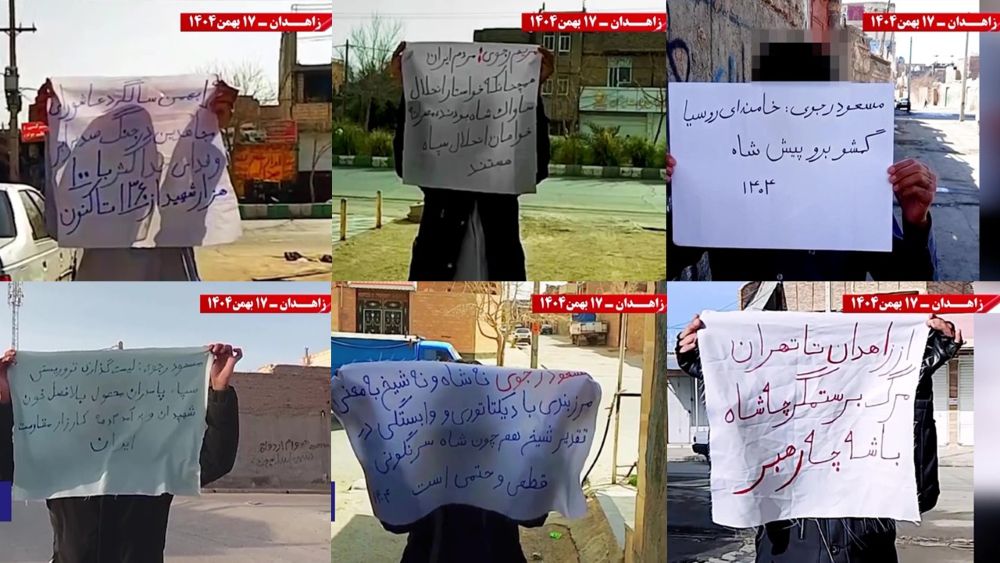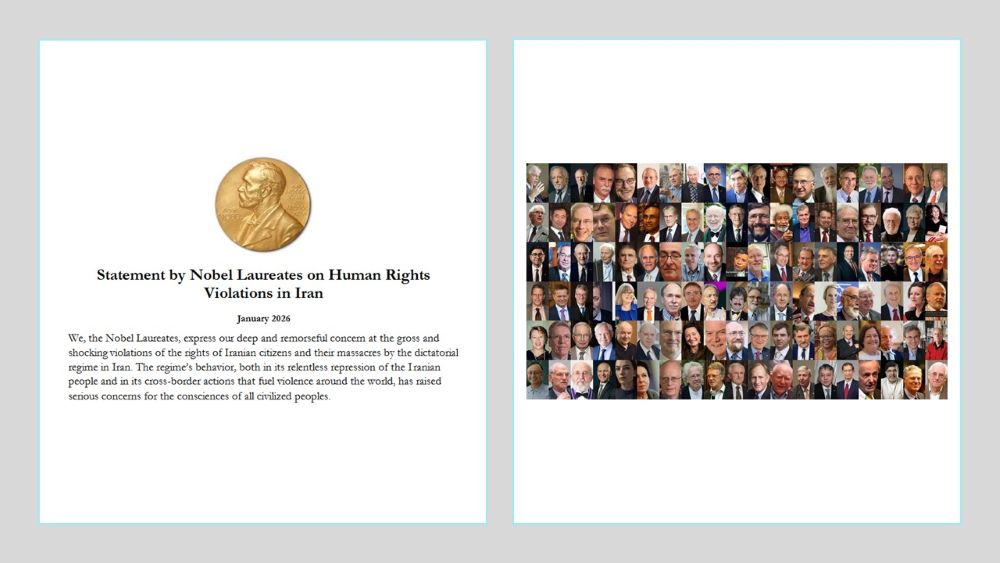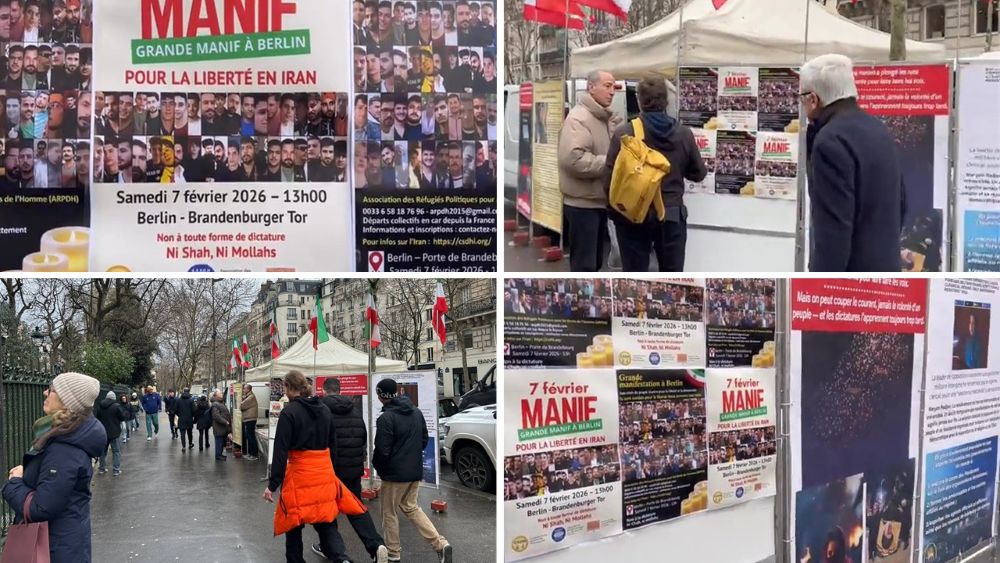Message by Maryam Rajavi for the 30th anniversary of the massacre of 30,000 red roses of freedom
Dear compatriots,
The thirtieth anniversary of the massacre of 30,000 political prisoners in Iran, the red roses of freedom, is a day of taking pride for every freedom-loving Iranian and every Iranian protester who has opted to topple the mullahs’ religious dictatorship.
The PMOI members and other freedom-loving combatants who were massacred in 1988, stood tall when hanged from the gallows so that the Iranian nation could be proud in one of the darkest eras of her history.
Khomeini wished to remove every single trace of them, so that nothing would remain of their graves and even of their names. But they were neither forgotten nor silenced. To the contrary, they rose up again from fameless towns and cities, from Izeh, Doroud, Ghahdarijan, Touyserkan, Baneh, Kazerun and Chabahar, to fuel the flames of the uprising in December/January and spread the protests all across the country.
This is their nocturnal song whispering in our ears:
I am the bird of fire
I am burning in the flames of my blazing love
When I completely burn
and the flames of my restless spirit subside,
I will rise again
from below the ashes
and start life anew
Yes, they remained steadfast in defending the PMOI’s positions for the Iranian nation’s freedom. They solidified the crimson demarcation lines of freedom and honor against submission and servitude. They are the restless conscience of Iranian society who sow the seeds of protest and revolt.
The nationwide uprising persisting today is the continuation of their blood-drenched perseverance. The resistance units and pioneers of the Call-for-Justice movement continue the path of those heroes.
Calling for justice for the victims of the 1988 massacre is one of the most important political demands of the Iranian people from the mullahs’ regime. Today, this call has challenged the regime in its entirety. The regime’s leaders neither dare to defend Khomeini’s fatwa for the massacre of the Mojahedin, nor can they distance themselves from this great crime because all of them were, directly or indirectly, involved in this crime.
The 30th anniversary of the massacre of 30,000 political prisoners in #Iran, the red roses of freedom, is a day of taking pride for every freedom-loving Iranian and every Iranian protester who has opted to topple the mullahs’ religious dictatorship. #1988Massacre pic.twitter.com/K8HZXuGOP8
— Maryam Rajavi (@Maryam_Rajavi) July 31, 2018
Thirty years ago, the ramifications of the massacre of political prisoners caused the biggest rift in the highest levels of the Khomeini regime and led to the ouster of his heir-apparent, and today, despite passage of three decades, they still challenge the ruling mullahs.
The mullahs continue to struggle to remove the traces of their crimes. Razing the graves of the massacred children of Khuzestan in Ahvaz, which Amnesty International described as an example of torture of their families, is part of the regime’s criminal efforts to confront the Call-for-Justice movement.
Under the pressure brought about by this campaign over the past year, at least 20 senior officials of the regime including Ali Khamenei, have clearly defended the crime. Such brazen confessions are new documents on this crime against humanity committed by the mullahs ruling Iran. The same admissions have been noted in the report of the UN Secretary General as well as in the report of the UN Special Rapporteur for human rights in Iran, the late Asma Jahangir.
The majority of those involved in this carnage, from both factions, are holding top positions in the regime. Over the past 30 years, except for a 4-year period, the Ministry of Justice has been directed by members of the Death Committees.
Fellow compatriots,
Thanks to the endeavors of the Iranian Resistance, the US House of Representatives adopted a bill this year which for the first time, registered the massacre of political prisoners and stressed the need to hold the regime accountable. Earlier, in the UK House of Commons, they adopted a resolution on the 1988 massacre.
As Massoud Rajavi said, prosecution and punishment of the perpetrators and masterminds of the 1988 massacre is the right of the people of Iran, the right of humanity, and the right of the PMOI.
One of the most treacherous features of the policy of appeasement over the past three decades has been turning a blind eye on the massacre of political prisoners which was a crime against humanity and the worst political crime after the Second World War. To rectify the damages caused by this disastrous policy, the UN Security Council must refer the case of the 1988 massacre to the International Criminal Court and prepare for the prosecution of the Iranian regime leaders and those responsible for the massacre.
Once again, I urge my fellow compatriots and all freedom loving people to actively participate in the Call-for-Justice movement for victims of the 1988 massacre. This is the movement of the oppressed. This is the voice of the oppressed. Everyone who has experienced imprisonment and detention, anyone who has been flogged, any woman who has been assaulted and humiliated, and every grieving soul, is a member of this movement. Demanding justice for victims of the 1988 massacre is today part of the movement for the overthrow of the clerical regime.
Without doubt, the Iranian people will achieve victory in the struggle to topple the mullahs and the regime’s leaders will face justice for their crimes against humanity. That day will certainly come.
Hail to the heroes of the 1988 massacre who said “No” to the regime. By doing so, they branded the entirety of this corrupt and inhuman regime with the seal of certain overthrow.



